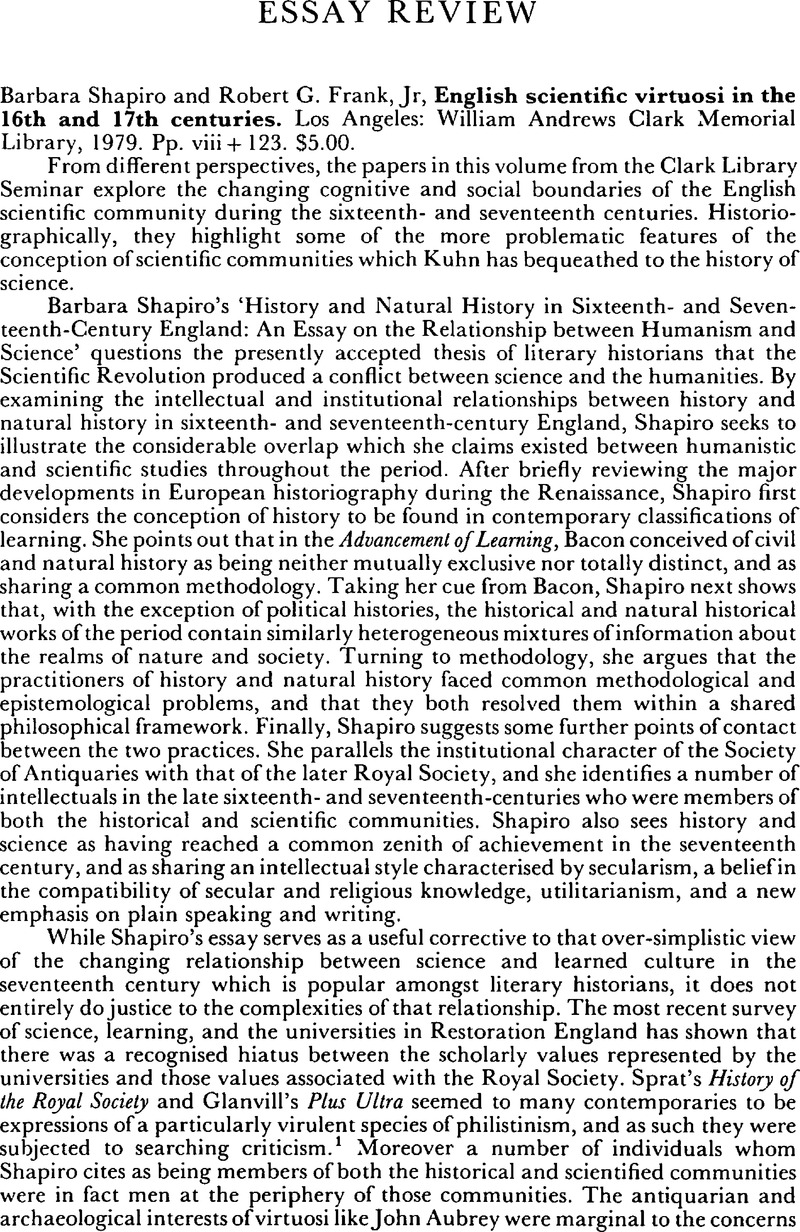No CrossRef data available.
Article contents
English scientific virtuosi in the 16th and 17th centuries
Published online by Cambridge University Press: 05 January 2009
Abstract

- Type
- Essay Review
- Information
- Copyright
- Copyright © British Society for the History of Science 1982
References
1 Michael Hunter, Science and society in Restoration England, Cambridge 1981Google Scholar, chap. VI. For contemporary criticism of the values expounded by the Society's apologists see Spiller, M. R. G., ‘Concerning Natural Experimental Philosophie’: Meric Casaubon and the Royal Society, The Hague, Boston, and London, 1980.Google Scholar
2 Hunter, M. C. W., ‘The Royal Society and the origins of British archaeology’, Antiquity, 1971, 65, 113–21, 187, 192CrossRefGoogle Scholar; idem., John Aubrey and the realm of learning, London, 1975, esp. chap. IIIGoogle Scholar; Houghton, W. E., ‘The English virtuoso in the seventeenth century’, The journal of the history of ideas, 1942, 3, 51–73, 190–219CrossRefGoogle Scholar. These should now be supplemented by Levine, J. M.'s Dr. Woodward's Shield: history, science and satire in Augustan England, Berkely, Los Angeles, and London, 1977.Google Scholar
3 Webster, Charles, The Great Instauration: science, medicine, and reform 1626–1660, London, 1975, pp. 308–23.Google Scholar


